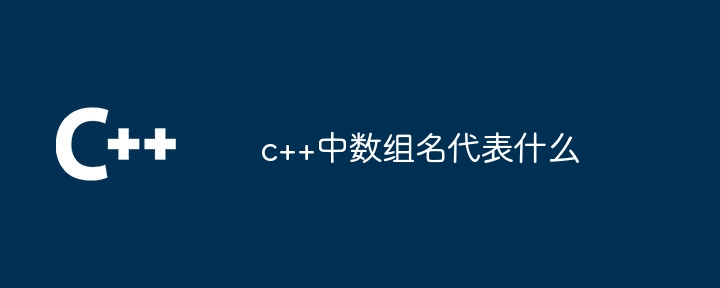Home >Backend Development >C++ >What does the array name represent in c++
What does the array name represent in c++
- 下次还敢Original
- 2024-05-06 17:09:14749browse
The array name in C represents the address of the first element of the array in memory. The array name is a constant pointer that always points to the first element of the array; specific array elements can be accessed through the array name and subscript; the array name is also an alias for the array and cannot be reallocated; the pointer to the array can be changed by modifying its value The array pointed to.

#What does the array name in C represent?
In C, the array name represents the address in memory of the first element of the array.
Detailed explanation:
When an array is created, the compiler allocates a contiguous memory area for it. The address of the first element of the array is the starting address of the memory area allocated to the array.
The array name is a constant pointer that always points to the first element of the array. This means that the array name itself cannot be modified, it always points to the same location. However, the actual values of array elements can be modified.
For example:
<code class="cpp">int arr[] = {1, 2, 3, 4, 5};</code>
In this example, the array name arr represents the starting address of the array, which points to the element arr[0] address. Specific array elements can be accessed by using the array name and subscript. For example, arr[2] will return the third element of the array (indexed starting at 0).
Other points:
- The array name is also an alias for the array. This means that array elements can be accessed through array names or pointers.
- The array name cannot be reallocated because it always points to the same memory.
- A pointer to an array can change the array it points to by modifying its value.
The above is the detailed content of What does the array name represent in c++. For more information, please follow other related articles on the PHP Chinese website!

